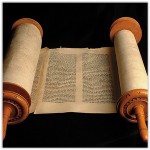Elias, Elijah
 [ElÄ«’as, ElÄ«’jah] – god is jehovah or god himself.
[ElÄ«’as, ElÄ«’jah] – god is jehovah or god himself.
1. Elias is the Greek form of Elijah (Matt. 11:14). Elijah the Tishbite is the grandest and most romantic character Israel ever produced (1 Kings 17; 18; 19).
The Man Who Had No Fear of Man
No career in the Old Testament is more vividly portrayed, or has as much fascination as that of the unique character of Elijah. The New Testament attests to his greatness and reveals what an indelible impression he made upon the mind of his nation. All we know of him before his dramatic appearance can be summed up in the words: “Elijah the Tishbite, who was of the inhabitants of Gilead” (1 Kings 17:1). Scripture is silent about his past history. Suddenly and with abrupt impetuosity the figure of the prophet bursts upon the scene to rebuke the godless and to reawaken and restore the nation of which he was a part. This man of iron is presented in many ways:
- As a fearless, bold and dauntless reformer (1 Kings 18:17-46).
- As a rebuker of kings (1 Kings 21:20; 2 Kings 1:16).
- As a mighty intercessor, praying with faith and intensity (1 Kings 17:20, 22; 1 Kings 18:36-38; Jas. 5:17).
- As a man prone to discouragement (1 Kings 19:4).
- As one capable of fallible judgment (1 Kings 19:4, 18).
- As a prophet divinely honored (2 Kings 2:11; Matt. 17:3).
- As a performer of miracles (1 Kings 19:8).
- As a God-inspired prophet ready to obey and trust God (1 Kings 17:1; 1 Kings 21:9-24; 2 Kings 1:2-17).
- As a saint whose end was glorious (2 Kings 2:1).
- Both mystery and majesty are associated with Elijah, the mightiest of the prophets. His history in 1 Kings can be appropriately studied under five prepositions:
- Before Ahab (1 Kings 17:1). When God commands us to speak, no thought of peril need make us dumb.
- By Cherith (1 Kings 17:2-7). Faith moves on, trusting that when the first step is taken the next will be revealed.
- At Zarephath (1 Kings 17:10, 24). Elijah was miraculously fed on three occasions – by ravens (1 Kings 17:6); by a widow (1 Kings 17:9); by an angel (1 Kings 19:5-8).
- On Carmel (1 Kings 18). Here we see the power of a fully surrendered man.
- In the wilderness (1 Kings 19). The overwrought prophet suffered a lapse of confidence, but was quickly restored.
- Elijah, the rugged prophet, suggests John the Baptist, who came in the same spirit and power of the prophet.
- Note these points of correspondence:
- Their familiarity with the deserts and solitude.
- Their austere manner and dress.
- Their strong reproof of prevailing evils.
- Their intrepid fidelity in calling all classes to repentance.
- Their exposure of the wrath of a wicked king.
- Their continued influence after death through disciples.
- Their fruitful labors. “Many of the children of Israel did they turn to the Lord their God.”
2. A son of Harim who married a foreign wife during the exile (Ezra 10:21).
3. A Benjamite and son of Jeroham, resident at Jerusalem (1 Chron. 8:27).
4. An Israelite induced to put away his foreign wife. (Ezra 10:26).
Today’s Reading Is From:
All the Men of the Bible
by Herbert Lockyer
A portrait gallery and reference library of over 3,000 named biblical characters. Characters you can learn from and teachings you can apply.
See also these related resources:
* All the Women of the Bible by Herbert Lockyer








